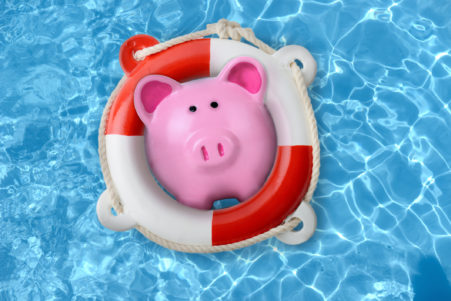Dealing with Scary Financial Situations

Halloween is fast-approaching and everything that comes with the spook-tacular season – tricks and treats, haunted houses, and costume parties galore. While some people can limit all the scary stuff to just Halloween night, other people may be haunted by personal financial crises year-round.
The good news is that New Era Debt Solutions is providing tips on how you can prepare for the worst:
Have a Backup Plan
Here’s a scary statistic: FINRA’s National Financial Capability Study finds that just under half of Americans have rainy day funds. Here’s another frightening stat: according to the Associated Press-NORC Center for Public Affairs research, two-thirds of Americans would be hard-pressed to come up with $1,000 in an emergency situation.
If you fall into either category, things won’t look good for you if you suddenly find you’re out of a job, need a new car part, or have to travel out of town unexpectedly. Everyone should have at least $1,000 saved in an emergency fund. If you set aside a minimum of $150 from each of your paychecks, you’ll have $900 saved by the end of six months. Of course it’s better to have more than that, but $900 is a great starting point.
Nip Bad Shopping Habits in the Bud
Until you’ve established an emergency fund, you need to eliminate frivolous shopping sprees from your life. If much of your shopping is done online, delete your credit information from stores’ websites. Your checkout process will take longer to complete and hopefully you’ll use that extra time to reconsider your purchase. Also, delete any apps from your phone that tempt you to shop and unsubscribe from any mailing lists that bombard you with “FLASH SALE” emails.
Talk to Your Lenders
Whether you’re struggling with credit card debt or your mortgage, don’t wait to contact your lenders. If you put this off, you’re bound to wind up in a worse financial disaster. By calling your lenders right away, your credit card/mortgage companies will know you are serious about getting back on track. Your credit card company might be willing to lower your interest rate and your mortgage lender may revisit your current loan plan.
Borrow from Retirement Savings
It may seem counterintuitive to tap into your 401(k) early but borrowing from your retirement savings may be the right choice for you in the long run. Not all 401(k) plans will allow you to do this but for some, you may be able to borrow up to 50% of the account balance. Generally speaking, the loans you borrow from your 401(k) plan must be repaid within five years but look out for any penalties you might have to pay on your withdrawals. As long as you have a plan in place to keep both your present and future debt-free, borrowing from your 401(k) may be an option for you.
Ask for Help
Lastly, don’t be afraid to utilize all the financial assistance available to you. If you’ve lost a job or were injured at work, take advantage of unemployment benefits and workers’ compensation. Look into state and federal benefit programs like Medicaid and Social Security Disability if it applies to your situation. If you find yourself without health insurance, look into signing up for COBRA (Consolidated Omnibus Budget Reconciliation Act), which regulates health insurance programs for those who are unemployed.
If you need assistance achieving financial freedom, contact one of our friendly counselors at New Era Debt Solutions to learn more about finding the debt relief option that best fits your needs and budget. We look forward to getting to know you and creating a plan designed just for you. Our counselors are with you every step of the way.
